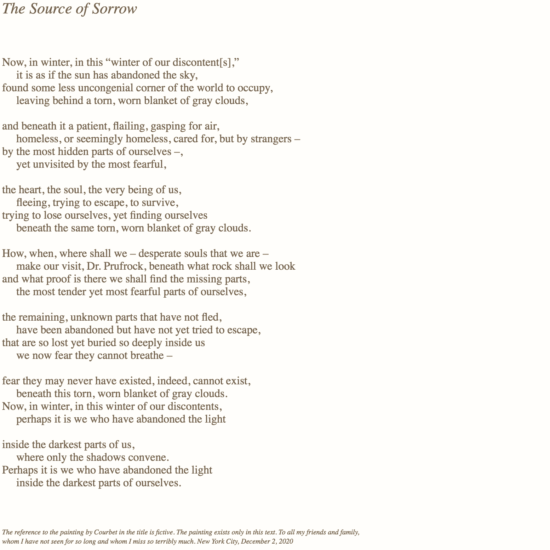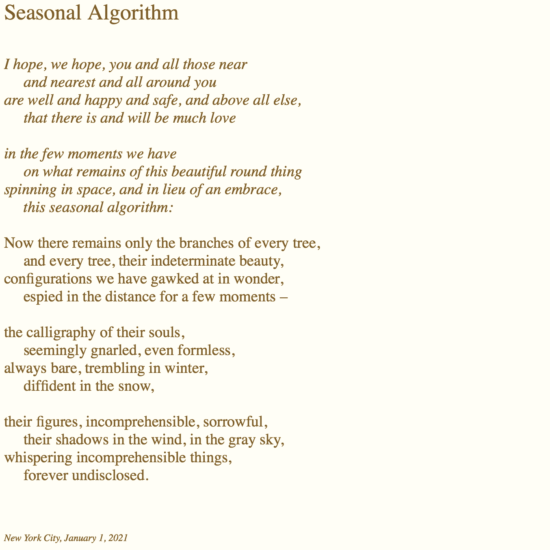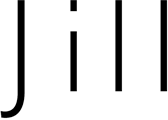
A WALK IN MY LIBRARY:
DECEMBER 31, 2020
JASON BUTLER'S EXHIBITION
Meyer Schapiro, “Theory and Philosophy of Art: Style, Artist and Society

BEHIND THE SCENES:
LIOR GALL, BRUSSELS, 2020
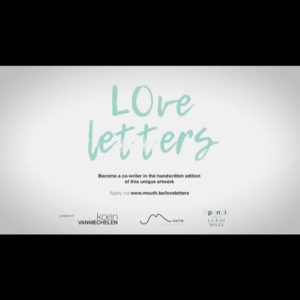
HIGHLIGHT:
LOVE LETTERS
A new participative project by artist Koen Vanmechelen

BEHIND THE SCENES:
LINDA KARSHAN AND THE BROOKLYN RAIL

BEHIND THE SCENES:
NOVEMBER 2020, LINDA KARSHAN
The Covid Conversation, A New Film
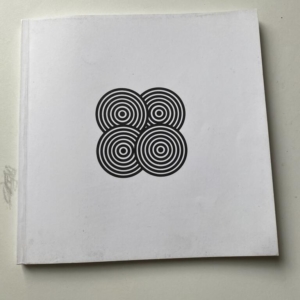
A WALK IN MY LIBRARY:
PARIS, NOV. 6, 2020
ABËTËI by Ishmael Fiifi Annobil

BEHIND THE SCENES:
MATHILDE BRETILLOT
Designs new offices for Parfums de Marly, Paris

BEHIND THE SCENES:
BERLIN STUDIO VISIT - LUKAS HOFFMANN

BEHIND THE SCENES:
BERLIN

BEHIND THE SCENES:
GALERIE NÄCHST ST. STEPHAN ROSEMARIE SCHWARZWÄLDER, VIENNA
Friederike Mayröcker, Curator Hans Ulrich Obrist - until 10 Oct
Schutzgeister/Guardian Spirits
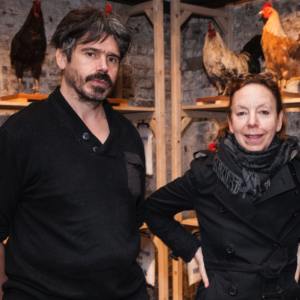
BEHIND THE SCENES:
JSVCPROJECTS AND KOEN VANMECHELEN
The Battery Channel Podcast
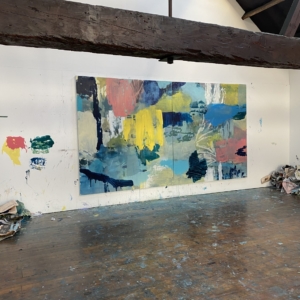
BEHIND THE SCENES:
ARTISTS IN THE STUDIO, JERSEY
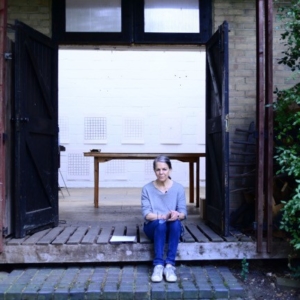
BEHIND THE SCENES:
MANIFEST OF THE TRUE

A WALK IN MY LIBRARY:
3 LOVE POEMS IN THE SUMMER

BEHIND THE SCENES:
SUMMER NEWS

BEHIND THE SCENES:
ROD MENGHAM,
Awarded the Cholmondeley Award for Poets

BEHIND THE SCENES:
JILL SILVERMAN VAN COENEGRACHTS RECOMMENDS

BEHIND THE SCENES:
LINDA KARSHAN
Studio visit

BEHIND THE SCENES:
STEFANO CIGADA,
"Frammenti" at the Museo di Roma in Trastevere

HAPPY NEW YEAR 2020!
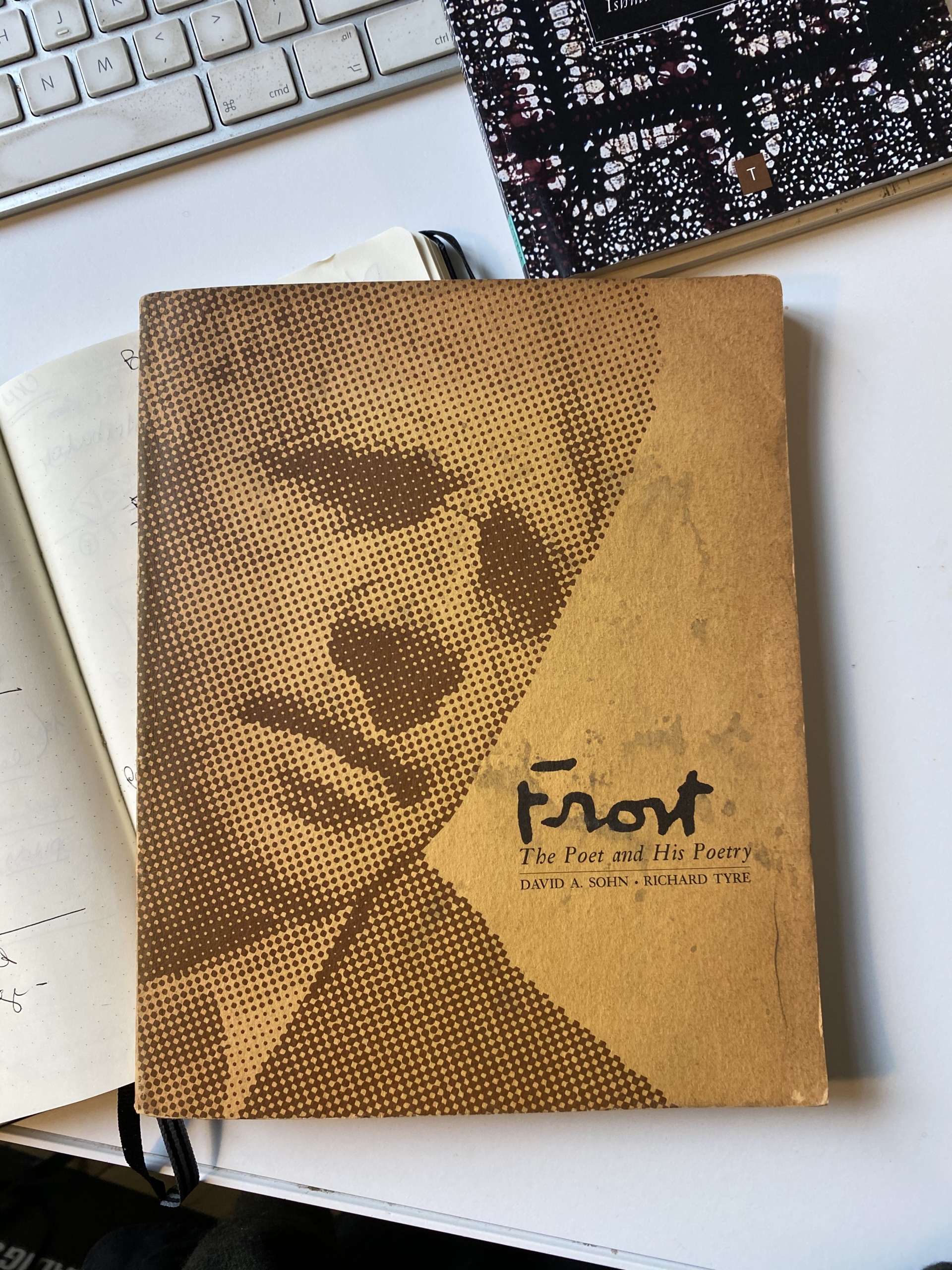
A WALK IN MY LIBRARY:
POETRY IN SEDITIOUS TIMES
January 12th 2021
Part I
I planned to see January as a moment of reflection –to look back at the year that ended none too soon; highlighting courage and pluck of artists with whom I work. In this year of pandemic it seemed the best we could all do was to keep our collective heads down, stay safe and work like crazy to keep a tenuous sanity.
My idea last Friday was to shout out the poets for work at years end. But events in Washington changed my thinking or rather upended it. Felt like a momentous event to watch in real time hour by hour, and subsequent days since, we have seen and heard the pundits unpack sedition in plain view.
Poetry is on the surface, as far away as you can get from a man with face paint and a Nordic hat pirouetting through the Capitol building in a crowd of people set on destruction and injury to anyone in their path. Rioting thugs breaking down the house to destroy the electoral process, interrupting the smooth transfer of power, this is domestic terrorism. The Capitol building did not accommodate Trump’s big lie. His followers were hell bent on tearing it down.
Maybe poetry is part of the truth of our understanding what we consider to be the true and it is linked to notions of beauty sometimes, because it is in this true speech that our humanity lives, with different points of view and diverse emotions. Words we share and the lives we have, mean something unique to each one of us. But in poetry and art something ties us together with a common form.
When I was young, maybe nine or ten, I wrote my first poem inspired by seeing my mother prepare the dinner table on a Friday night. Everything just so, candles waiting to be lit. Challah covered on a plate. I had a feeling of anticipation, something giddy in my stomach. That we would all be there at the table, my younger brothers, my father tired after the week working for his father, perspiration around his shirt collar and the tie slightly loose.
Part II
I wrote a poem about this highly stylized preparation because it seemed to me as a little girl to have something to do with bliss, something I felt cut off from. A state of affairs that existed outside of all the participants, it was in the air so to speak, a specialness in the air. This was the purpose of my poem to catch the temperature of the air in that hour before the noise of another end-of-week-dinner overtook a tumultuous family, and mostly to celebrate my mother’s calm above us.
The poem led to a massive argument and punishment weeks later about the truth and lies. Perhaps this is why I am writing here about poetry and sedition. My teacher called my parents in and asked them how I had written such a poem it was clearly taken from a book somewhere. It could not be the work of ten year old. My parents came home and confronted me wanting to know what book I took the poem from, didn’t I understand how serious plagiarism was.
The big lie they believed was that I couldn’t have written it. I was punished for lying because I did not admit taking it from another source because it was my work.. This is the truth. But I was punished just the same, and the nasty teacher was fired a decade later for being an alcoholic, my mother said.
Poetry reminds us what is true. What we share, what is in the air between us that has no form whatsoever, just there floating all that stuff, unspoken but not unfelt. My awe at the dinner table on a Friday night was also how we felt being taken into the Capitol building for one of my younger brother’s Bar Mitzvah trips. By then I was fifteen and he thirteen. We walked quietly, heads straight, we were in a sacred place for our country; I studied the American Revolution and knew what the Constitution was. We sat in the same gallery where members hid on the floor, because our Congressman gave my father passes; events of last week made me crave poetry and then I recalled all the rest.
Part III
A book I discovered on my bookcase in my mother’s house was a volume on Robert Frost that was given to me by a teacher in 1968. In junior high school I first read Saroyan, Hemingway and Frost. I remembered having seen the very elderly poet in 1960 (I was eight) when we watched him on a big black and white television during the inauguration of President Kennedy. He was elderly and spoke off the cuff, my mother said, the sun too bright to read. For some reason today the memory of that event, sitting on the floor on a cushion, having the day off from school because Dad had been campaigning for Kennedy. All doubles back on the insurrection we watched last week.
This paperback book is dog-eared and yellowed. It did not come with me when I left for college in 1970. Nor anywhere after that, it stayed behind on the shelves in my old bedroom that had many years since become a room for my brothers and wives and children, and occasionally on Thanksgiving for me again. I brought it with me a year ago, two months before the pandemic began. Along with other papers and archives of interest. I reached for it today thinking about poets and politics. A chapter called Courage, quotes Frost,
“You’ve got to be brave and you’ve got to be bold. Brave enough to take your chance on your own discriminations – what’s right and what’s wrong, what’s good and what’s bad.”
Found this interesting in light of last week. Again a poet thinking about right behavior, like the upright birch trees in his woods. I understood poetry through his eyes as a young girl, through craggy images of him on the New England landscape, in black and white photographs, through stanzas that I memorized sometimes.
“I shall be telling this with a sigh
The Road Not Taken
Somewhere ages and ages hence:
Two roads diverged in a wood, and I –
I took the one less traveled by,
And that has made all the difference.”
Part IV
Cynthia Kraman Genser was my downstairs neighbor at 16 Charles Street in NYC for two decades. When I moved in it was June 1976. She published her first book of poetry the next year Taking on the Local Color by Wesleyan University Press and this, her second, was published in 1978. I was writing for The New York Times and she was writing poetry. It took a couple years for us to become friends but then we were real friends. She had also a life as a rock music chick in Seattle but then came back to the Village.
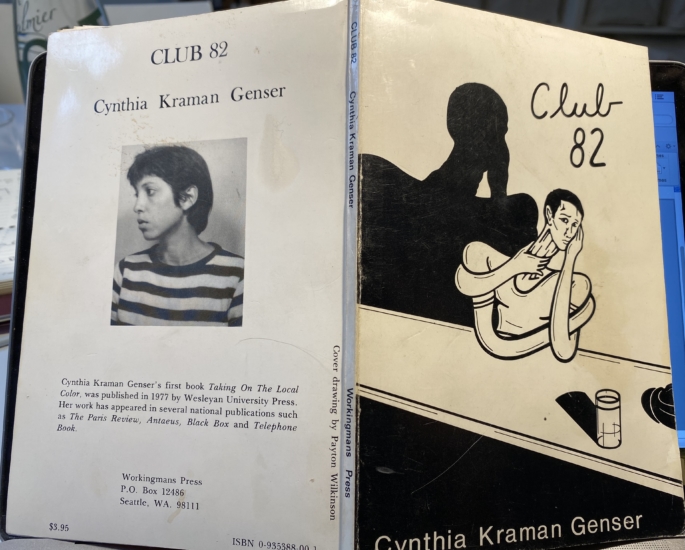
People tend to glamorize and romanticize New York in the 70’s. It was gritty. The city was bankrupt. We had black and brown outs in the hot summers. The art world was edgy. We had the sense of political breakdown. She caught the despair and tawdry smell of things. When people talk to me about the scene in New York at that time, they always seem to forget that smell. I can’t, it was thick in the cold of winter, and acrid in the humid summers. But we were young and I ran around the city like it was my backyard, feeling free and smart and excited to be there in the middle of everything. Waiting for new things to appear before my eyes and they did. Was introduced quickly to cynicism and loss of hope with the AIDs epidemic. But that is getting ahead of us here.
“Take two pills and it goes away a headache he has his whole
life. Says to the wife “I remember something but I don’t
know what it is” reaching for a limb of the imagination,
there’s nothing there. And he moves over the land a marked
man crying “O my friends have pity on me. Have pity on me.
For I am one touched by the hand of God.”
CKG November 1975
Club 82 New York City
Part V
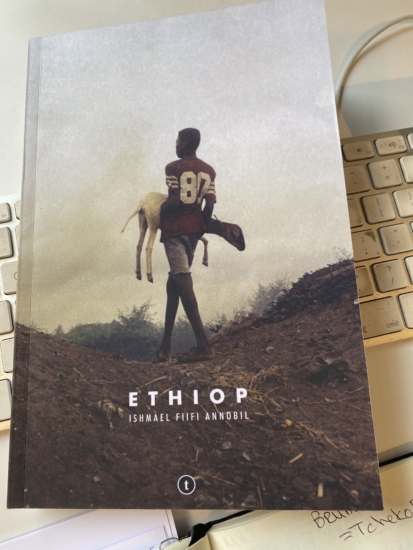
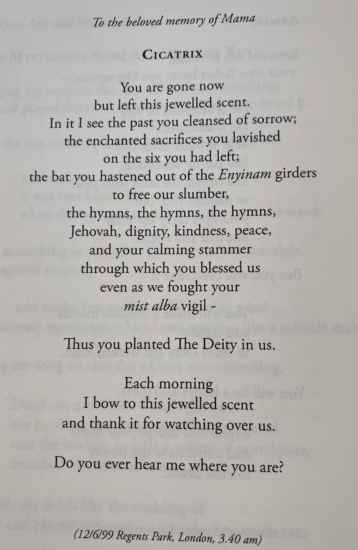
Coming back to the present I will leave you with three poems by my friends and colleagues Ishmael Fiifi Annobil and Richard Milazzo. In talking about the stamina of our human hearts for order, kindness, right action and our better angels, to strike at the moral abyss we saw open before us last week in Washington, I offer a poem Ishmael wrote for his mother — which moves me profoundly. Richard has written two recent works that were in the last month of the past year a kind of beacon through the turmoil of daily life.
I am grateful to them both for allowing me to share them with you here.

